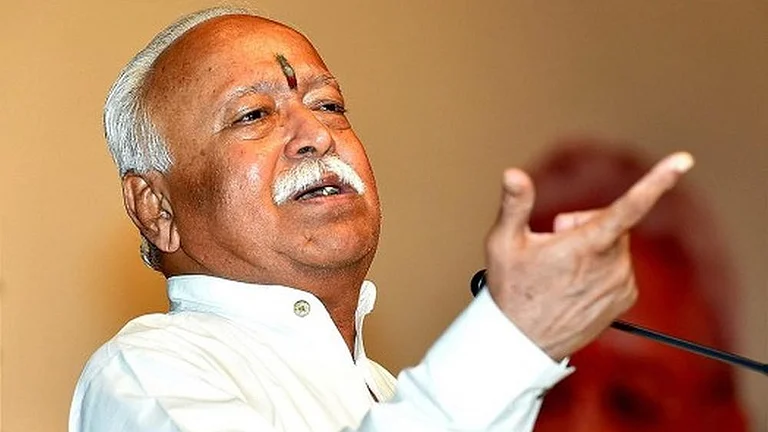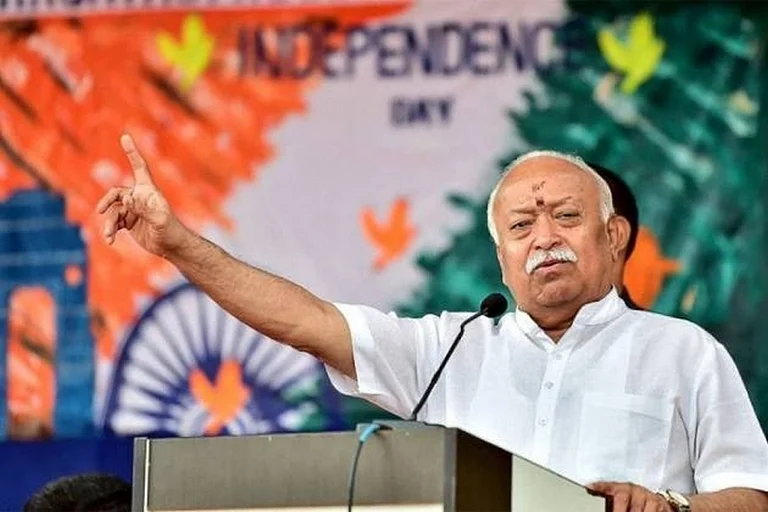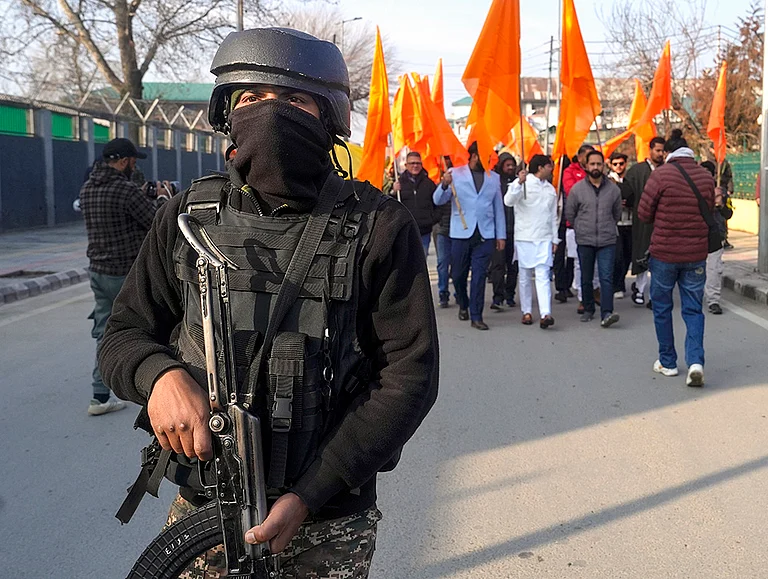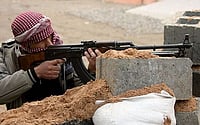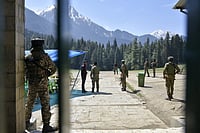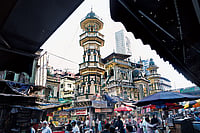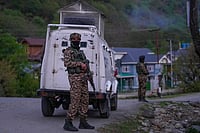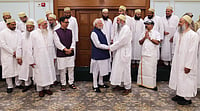On a scorching Friday evening in April, Shahi Masjid also known as the Kale Patthar Ki Masjid, Nagpur’s oldest mosque, just stone’s throw from the headquarters of Rashtriya Swayamsevak Sangh in the Mahal area, witnessed a first-of-its-kind meeting.
At the end of the jumma prayers Pyaare Khan, a city businessman, surrounded by the mosque’s imam and other religious leaders, kickstarted Bharatiya janata Party’s (BJP) Lok Sabha campaign from the mosque grounds.
“The BJP is not an anti-Muslim party and is ready to work for the Muslim community,” Khan said. “This election, Muslims should try and vote for the party at least once—‘Ek baar BJP Sarkaar’—Khan added.

The businessman, though not himself a member of the saffron party, has held similar meetings in mosques in Ekta Nagar, Pardi, Tajbaug and other Muslim-dominated areas, campaigning for BJP’s Lok Sabha candidate Nitin Gadkari.
The mosques are a key part of his campaign strategy as he tries to consolidate the Muslim vote in the BJP’s favour. Nagpur has nearly 3.5 lakh Muslim voters constituting nearly 11 per cent votes, the majority of whom have been Congress supporters.
In Nagpur, the contest is between Gadkari and Congress candidate Vikas Thakare, former MLA and Mayor of Nagpur, who is popular in the Muslim community.
“I am telling my Muslim community that they should join the BJP wave of development, get prosperous and contribute back to the nation. It is about time we become givers not just the takers,” said Khan, a close associate of Gadkari.
Social activist Rubina Patel, meanwhile, branded Khan’s campaigning as part of BJP’s “jumla politics” to “fool” Muslim voters.
Muslims in Nagpur, like in the rest of the country, are angry with the BJP as the community and activists alike have faced undue harassment, Patel said.

Patel was detained last year and has two criminal cases against her for protesting against an encroachment drive in the Tajbagh area, a Muslim ghetto adjoining the Hazarat Tajuddin Baba Sufi shrine.
It was Khan, who as the chairman of the shrine’s trust, reportedly started bulldozer action in Tajbagh, ostensibly in the name of beautification drive.
“Muslims in Nagpur are aggrieved and do not buy the BJP narrative that it will work for the development of Muslims. People are questioning Gadkari about what he has done for the Muslims; they are asking him how many Muslims has he provided employment to,” Patel said.
Traditionally, Nagpur has been a Congress stronghold, despite being the home ground of the Rashtriya Swayamsevak Sangh (RSS). Secular-minded Hindus and Muslims have always leaned towards the Congress party. This trend has persisted over the decades and is prominently visible in Muslim and Sangh-dominated areas.
The Jaffarnagar locality, comprised of close to 80 per cent Muslim population, is represented by Congress’ Hindu corporators. The Central Nagpur assembly constituency, which includes Sangh’s three landmark buildings, elected Congress MLA Anees Ahmed in the year 1994 and 1999. The BJP emerged as a national party in the 90s following the Ram Janmabhoomi campaign and the Babri demolition.
“Nagpur did not witness riots or communal tensions when BJP leader Lal Krishna Advani’s rath yatra crossed the city or after Babri’s demolition. We do not have the culture of religious extremism and hatred,” recalled advocate Firdaus Mirza, convenor of the Vidarbha Muslim Intellectual Forum.
“Muslims in Vidarbha have good relations with Sangh and the BJP leaders. The two communities respect each other and do not harbour feelings of communal hatred. Personal relations and friendships between Hindus and Muslims have triumphed over the ideological differences and opposing political choices,” he added.
Mirza cited the example of Padma Vibhushan and social activist Abdul Karim Parekh, and his friendship with RSS ideologue M G Vaidya.
According to Mirza, such deep association and personal relations have existed as the Muslim community in Vidarbha and Western Maharashtra was an integral part of the Maharashtrian culture. “Muslims are generational families in Vidarbha. We have not migrated from outside regions and our culture, language and way of living is similar to the Marathi Hindus.”

During the Ram Navami festival in May, the Muslim community sets up sherbat stalls along the route of the Shobha Yatra and Hindus follow the same custom during the procession of Eid-Milad-Un-Nabi, celebrating the prophet’s birthday.
Muslims living in the proximity of Sangh’s headquarters say they don’t live in any insecurity neither are they afraid of Sangh workers.
Due to close relations between the Sangh-BJP and a section of the Muslim community, roughly 5 per cent of the votes of the Muslims go to the BJP, community members said.
Tulshibaug resident Sheikh Abdullah, whose house is close to the RSS Smarak building, recalled BJP corporator Ekanth Jog’s work for Muslims and Dalit communities, and because of this the community strongly supported him. “Our area has always voted for Congress but if there are members of the opposite party who work to address our problems, we will vote for them.”
Brothers Arsalan and Farooq Siddiqui (name changed), who live in Sangh-dominated Mangalwari area, agreed the BJP has done good work under Gadkari and Muslims earnestly would like him to win. “We do not want him to lose, he is the pride of our mohalla. In an interview he once said, when I wake up I see the face of Muslims because they live all around my area,” Farooq said.
Shakil Sattar, President of the Muslim Intellectual Forum, said the BJP and the Congress-led INDI alliance have let down Muslims, by not giving tickets to even a single Muslim candidate in Maharashtra. Both parties are invested in the influence of caste dynamics and have turned a blind eye to the Muslim vote share.
“We held discussions with the Congress party and demanded tickets for Muslim leaders. If Muslims do not have political representation, how will any party work for the community’s development,” he asked. He
Khan, meanwhile, maintains that due to Congress’s “appeasement politics”, the Muslim community has gained no benefits and has only been utilised as a vote bank. “The reason Muslims live in poor congested ghettos and have remained backward is because Congress has kept us oppressed,” he said.



